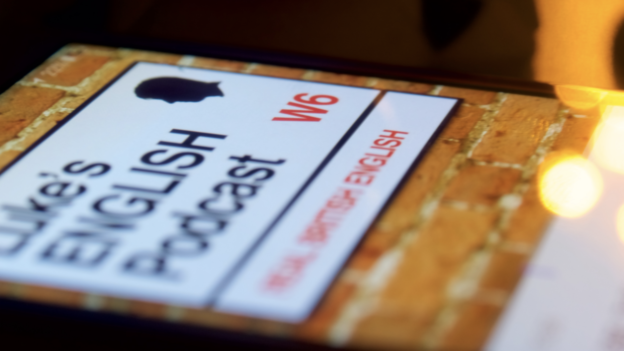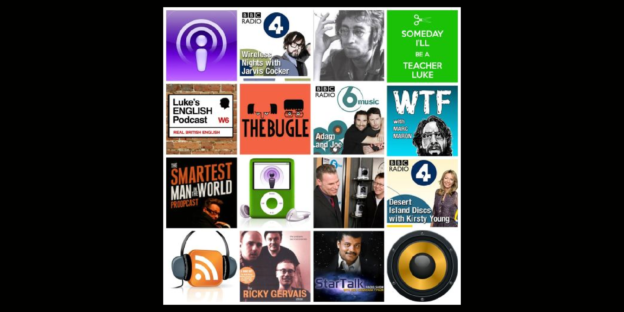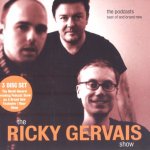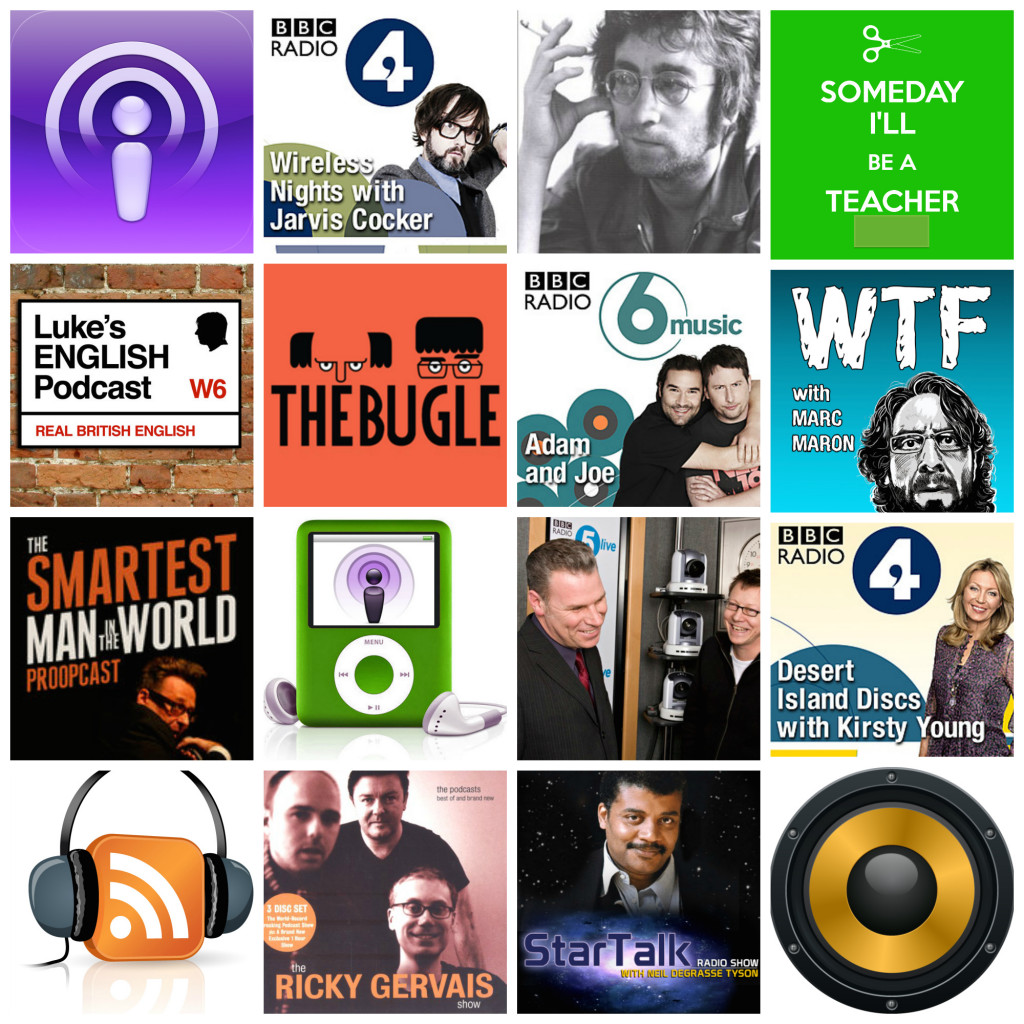Hello, welcome back to the podcast. This is part 2 of a fairly long rant I recorded today about the Brexit situation and England’s awful performance in the football yesterday. There might be some strong language and swearing. There will also be lots of fairly strong political points of view from me. Please listen to the whole thing and try to avoid knee jerk reactions. If you disagree with me please feel free to leave a comment because I am open to other points of view – but I encourage you to fully flesh out your opinion, don’t just give your knee-jerk reaction without backing it up with some evidence or justification.
![]() [DOWNLOAD]
[DOWNLOAD]
Alright, so let’s get back into it. When the last episode ended I was talking about the promises made by the leave campaign, which they’re not going to deliver. This is based on an article from Indy100 website http://indy100.independent.co.uk/article/8-of-the-most-misleading-promises-of-the-vote-leave-campaign-ranked-in-order-of-preposterousness–WyxD59VO3Nb I think I just told Nigel Farage to go home or something. We’re now onto point 3…
*Ranting continues*
3. We aren’t going to be able to stay in the single market
No other country has a set up like that: both France and Germany have made it abundantly clear that we are not going to be able to have our cake and eat it, ie, take advantage of the free-trade zone without contributing a single penny to it, as Leave says we will.
4. We aren’t going to get our sovereignty back
Looks like we’re going to get a new prime minister by the end of the autumn Conservative party conference. It’ll be a short list of two people, nominated by MPs.
This unelected leader could then theoretically hold office unopposed until a general election has to be called in three year’s time.
P.S. We still have the House of Lords. So there’s that. (So in fact we will have a less-democratic arrangement than we had before)
6. We won’t remain a world leader in research and development
UK investment in science and universities has dried up since the recession, whereas the EU gave us £7bn in science funding alone between 2007 – 2013.
We’re also going to face new barriers to collaboration with European universities and research centres.
7. We aren’t going to save £2bn on energy bills
Leave promised we could end VAT on household energy bills. While that’s possible, it won’t save us any money in reality because we rely on imports for so much of our energy.
Because the pound has fallen, inflation will go up, which means imports and thus our domestic energy bills will cost up to 12 per cent more than they currently do.
8. We aren’t going to be a ‘greater’ Britain
Overnight the UK economy has already slumped from the fifth largest in the world to sixth.
More than £200 billion has already been wiped from the value of the UK stock market – or put another way, 24 years’ worth of UK contributions to the EU.
So overnight we lost more money than we contributed to the EU in 24 years, we became less democratic, we lost access to the single market and whatever arrangement we will have in the future is bound to involve more low-skilled labour being imported from abroad. Oh and by the way the other point which was subtly made but rarely explicitly stated – that Brexit would help us limit the influence of radical Islam on UK culture – there’s no indication that this will happen either.
Pretty much all the arguments made by the people who argued for remain are coming true. The remain campaign were called “Project fear” because of the bleak predictions they made in the run up to the vote. It’s now pretty clear that it was “Project reality”.
Anyone who is now slapping themselves on the back and saying “we took our country back” must be delusional. The country is in crisis basically. We have no idea how we can manage this situation going forwards. How on earth can we bring our economy back to the stable position it was in before this referendum?
How are we going to replace the business that we face to lose from suddenly being cut off from 50% of our market?
Sure, we can start to negotiate trade deals with other countries, but how long is that going to take and could it be possible for us to achieve a deal that’s anywhere near as good as what we had with the EU?
People talk about taking Britain back to the position it was in before – but in 1973 it was obvious to be part of the union. Our influence on the world’s stage had shrunk so much since the war that joining the European club was definitely the right choice. Since then our country has enjoyed a stable and beneficial relationship with our neighbours in which we have traded goods and acted as a great investment opportunity for foreign companies wishing to get access to the EU – the biggest marketplace in the world.
Now we are shut out from that, left with not much more than our national pride.
The idea that the UK was suffocated by legislation from Brussels wasn’t true. It was at worst annoying and frustrating, but nobody mentioned the benefits of the union to our economy – namely, that it kept the entire thing stable, safe and fair.
Now we have to build the whole arrangement up again – hopefully to a level that’s equal to what we had before, and hopefully better – and we have to do it in less than favourable conditions.
Our PM has resigned, and he’ll be replaced in October. Finding a new leader is going to take time and effort. A lot of time will be spent on this. A new government will have to be constructed. We might even have to have another general election. While all that is happening, we won’t be making trade deals and negotiating our exit strategy from the EU.
Scotland will be pushing for a referendum again and if they get it they’ll probably leave. We’ll then have to negotiate the terms of that as well. Also a huge undertaking.
The opposition party – Labour, is currently splitting up, with members of the shadow cabinet quitting in protest at the leadership of Jeremy Corbyn. They say he’s not fit to lead the party through this next period. He’s refusing to go, saying that grassroots labour supporters want him to stay.
Meanwhile, the EU is pressing the UK to get out of the union as soon as possible.
We don’t have much time to organise our strategy for getting out of the EU while negotiating some kind of new trade deal with the EU that will prevent many businesses from losing their customers.
Frankly, that deal just can’t be as good as the one we had before.
Movement of people – there’s absolutely no guarantee we’ll be able to control this, as we all knew.
Project fear is now becoming project reality.
Why did old people vote to leave?
One LEPster asked me why so many old people voted to leave. I think it’s because of nostalgia and because the EU has less value to them. About the value – the EU is not really a viable place to live and work if you’re retired. Young people see the EU as a place of opportunity. As for the nostalgia, older people knew what life was like before the EU. It was a golden age – the 1960s. It must have been amazing. All that prosperity and positivity coming out of the war. All the benefits of the welfare system which was built after world war 2. All the nostalgia of youth. A vote for leave was basically a vote for nostalgia. Young people are very angry with the older generation who just selfishly put us all in a really crappy position. Not all older people voted out. My parents voted remain. My Dad is understandably livid about it. Apparently, they both spent the weekend kicking the furniture and swearing.
Now – we have to stay positive and try to make this work
I do believe in my country of course. The UK has always been an inventive and dynamic place. I’m sure we’ll rise to the challenges that the future faces. It will take time for us to get ourselves back to the position we were in before. We’ll have to work hard to get back to normal. I say “we” – I don’t know if I’ll be part of it directly, living here in France. It’s not clear what’s going to happen to my status as an ex-pat. It’s also not clear what’s going to happen to all the EU citizens who have a life in the UK. Again – we just don’t know. Turmoil.
Maybe this turmoil was inevitable
Also, there is the idea that perhaps this turmoil was inevitable. After all, since the economic crisis we’ve had years of a Tory government punishing the ordinary taxpayers with austerity measures. This could be responsible for the general sense of dissatisfaction that people are experiencing, which led them to vote leave as a protest against the Status Quo. When our banks, like the banks of all the other EU nations, lost so much money in the financial crisis, the government’s response was first to bail out the banks (take money from the national bank – tax revenue – taxpayers’ money) and use it to pay off the banking debts, bringing their balance sheets back to normal so they could continue trading, effectively keeping the whole economy stable.
When this happened, the government effectively took public money from ordinary taxpayers and injected it into the private sector. They took public money and made it private. The bankers screwed up, and we all paid for it. But it wasn’t over because the UK still owed billions of pounds to creditors. The country had borrowed a lot of money and needed to pay it back. How were they going to do it? First – help the banking sector by giving them lots of our money and by reducing controls on their investments and activities (i.e. imposing less tax to help stimulate business) and then cut public spending. So, let the rich get richer and make the poor pay for it by reducing the money the government spent on services like healthcare and other forms of welfare. What happens is that rich people get richer, and all the trouble and pain of the economic crisis is transferred onto the lives of the poor and lower class people who had nothing to do with the crisis in the first place.
But they have their services reduced, there’s less money to support them, they’re told to just “do it yourself”. Generally it feels like the government just doesn’t give a toss about these people. At the same time they are experiencing the direct result of rising levels of immigration and without proper community programmes to make sure this happens smoothly, there is loads of conflict and tribalism in many poor towns. A lot of people feel like their government doesn’t care about them and that their culture is under threat.
So then we have the Eurosceptics like Nigel Farage. In fact, particularly Nigel Farage, who comes along and decides to speak on behalf of these people, who he described as ordinary, good, decent people. Now immediately there, you see some rhetoric. So, if you don’t agree with Nigel Farage, you’re not a decent person? I understand that he’s done that because he’s standing up for alienated people, but he has to accept that this sort of language will breed hatred and intolerance to people with differing views. Nobody else is using language like that “decent people”. Decent means “socially acceptable, good, morally good, clean”. So if you’re not a decent person you’re “Socially unacceptable, bad, immoral and dirty”. He didn’t state that explicitly, but there is an implicit level of prejudice in his rhetoric which is extremely seductive to those who see foreigners as the major problem in society, and this is dangerous.
Nigel goes around speaking directly to the experiences of the people affected by the government’s austerity measures. He points the finger not at the government’s plans and the way that these communities are suffering from a lack of support and services. Instead he says that it’s the EU which is strangling the UK’s sovereignty. It’s the EU which is killing British culture, it’s the EU that is why there are new faces in your area, and it’s the EU that’s causing your sense of dissatisfaction.
Then add the media into the mix. The Sun newspaper, the Daily Mail, the Daily Express – day in day out focusing on what they call “Tidal waves of immigration”. Even when the USA experienced the worst public shooting in it’s history, the Express chose to lead the front page with an exaggerated story about immigration. These papers make it their business to shock people’s emotions. They trade in anger, resentment, fear and titilation. Just look at the Daily Mail’s website. It’s a staggering mix of outrage, fear and lust as knee-jerk stories are presented in BLOCK CAPITALS while the sidebar of every page shows half-naked celebrities caught on camera showing off their bodies. What a dizzying mix of emotions – it’s quite seductive and insidious.
Farage, the leave campaign and the right-wing media continue to pedal this kind of stuff on the British public. It’s basically British Trumpism. The Donald Trump effect. I’m not saying he’s the cause of it. I’m just saying that it’s a similar trend. Angry lower class people who have been the victims of the economic crisis are expressing their discontentment by supporting candidates who they perceive are supporting them, speaking the truth, not part of the established political system, and not afraid to say controversial things. They support them, and it’s a deception. Ultimately, the result is not what they wanted. Immediately the big promises are not delivered. Everybody remembers that Farage is a member of the political establishment too. He went to a public school like the other members of the government. He’s a man of big business and high finance.
The result comes in that the leave campaign has won and even the prominent campaigners seem stunned. They’re all backtracking on what they promised and failing to convert the rhetoric into solid plans for the future. It’s almost as if they didn’t believe they would win it. Boris Johnson’s first speech after winning was disturbing. He seemed almost ashamed and worried. He looked like a guilty schoolboy. The Prime Minister had just resigned and it dawned on Boris that he might have to be the one to lead Britain through this mess. Not an enviable job. Suddenly the position of PM seems far less attractive. Perhaps Boris had that sick feeling in the pit of his stomach like the rest of us on that day. This was a mistake, and it was wrong to use this as a platform for self-promotion.
Now I know what a lot of people are saying – “It’s democracy! You can’t argue with the referendum result, it’s democracy in action!” or “You wouldn’t be complaining if it had been a remain result”. No, I wouldn’t complain with a remain result because I think that’s the right answer! And I can argue with the outcome of the referendum. That’s my right! Just because this result happened as part of a democratic process, doesn’t mean it’s necessarily the right outcome. Don’t put democracy on a pedestal – saying it’s this untouchable, perfect process. Referendums in particular have been used many times before to do some terrible things, and in fact they can be very undemocratic. The problem with a referendum is that the result can be manipulated via propaganda or misdirection, and the result of a referendum gives tremendous legitimacy to the government to make certain big decisions. Hitler was a big fan of referendums. He managed to use them quite effectively in the run-up to WW2. So, referendums are not a guarantee for the right result.
I don’t want to be all negative and depressing about this. As I said before – I have faith in the UK to find a way through this. But I can’t hide that I’m really angry about it, and I think I’m well within my rights to express that. I don’t have to just shut up and accept things. In fact, as we have seen from the past, shutting up and accepting things is often the wrong thing to do.
Also I am aware that this Brexit result might just be a symptom of larger forces at work. I got an email from a regular LEPster the other day who made a good point about climate change. In fact, climate might be the biggest factor in all of this. Essentially, the world is going to change a lot and certain parts of it are going to become less and less habitable – especially the middle east. Naturally, people are going to want to escape that area if the conditions are inhospitable. Add that to ongoing conflicts and the actions of groups like ISIS. This means that many people from that part of the world will be coming to Europe. That’s just the way it is, and we need to find ways to accept it and deal with it. Isolationism is not necessarily the answer. Just get out of the EU and take our country back! That’s not necessarily a sustainable position. The wind is blowing and like it or not.
Immigration – A difficult subject to discuss
This is the thing which is so hard to talk about.
Here are the problems with this subject.
First of all, people don’t want to seem racist or to accuse others of racism.
It seems reductive, rude and disrespectful to accuse people of racism straight away. I’d rather listen to their arguments in full before I decide if they’re racist! I think shouting ‘racism’ at someone as soon as they start saying something uncomfortable means you’re no longer prepared to listen to them. I’m prepared to listen to anti-immigration arguments. I’m constantly looking for articulate statements about it, which are not just based on prejudice. I don’t find many.
There are two main arguments against immigration. The economic one and the cultural one.
The economic one seems to be that immigrants steal jobs from locals, they cause wages to be lower (which means that low class people are paid less money) and they are a drain on resources because they come to take advantage of our benefits system and our health service. There’s even the sentiment that they are criminals, rapists and terrorists intent on completely obliterating our way of life. There’s quite a lot of confusion and contradiction. I think it’s true that wages have gone down for low-skilled work. Often, immigrants are willing to work for less money so this affects the labour market. Wages go down for those types of job. I’m sure this makes a lot of people angry and they have targeted the EU. Ironically, a lot of the legislation passed by the EU intends to protect workers’ rights, for example protecting minimum pay levels and other things.
What’s left is the sentiment that – “they are coming here to steal our benefits” and “they’re coming here to steal our jobs”. Are they lazy benefit scroungers? Or are they stealing your job? The Doug Stanhope response to this is: if these lazy benefit scroungers are a threat to your job, what does that say about you?
Doug Stanhope
Charlie Brooker – Weekly Wipe
The other economic point to be made is that it’s been proven that immigration has helped our economy and that they contribute more than they take away. They contribute by paying tax first of all. They also contribute by providing skills. Most immigrants from the EU in employment are doing skilled jobs, except those from places like Romania and Bulgaria who are doing lower skilled work – but that’s quite vital for certain types of industry which rely on unskilled workers.
By the way, over the last year the UK has enjoyed record levels of employment. Generally the job market has been healthy. IN February this year the UK had the third lowest level of unemployment in the EU. We had 5% unemployment. Germany had 4.3%, Czech Republic had 4.5%. The highest was Greece with 24% (shocking) and Spain with 20% (also shocking). So, the vast majority of people in the UK were in employment before the referendum and our job market was pretty good, although wages for unskilled work were admittedly held down by the competition from migrants in the labour market.
The other main argument against immigration is the cultural one. This is about protecting the way of life in the UK in the face of many others coming in. Let’s be honest, this is a religious argument – or really an anti-theist argument, or an anti-Islam argument. It is difficult to have a frank and honest conversation about immigration and about people’s fears of the islamification of the UK because it’s wrong to generalise about muslims when most of them are moderate and just want an opportunity to live in peace. I am well aware of the arguments against religion and against Islam. I often watch debates on the subject and I’ve read work by well known anti-theists like Sam Harris, Richard Dawkins and Christopher Hitchens. So, I know about the arguments and I find them fascinating.
The point is – a lot of people don’t want hundreds of thousands of people to come into the uk and bring with them a belief system that they feel will be bad for our culture. I can understand that. However I think it’s not as bad as it seems, and there is a certain amount of fear and bigotry involved, which distorts reality. There’s also a fear of the unknown which causes people to jump to conclusions and fill the gaps in their knowledge with imagined scenarios. This is a normal part of human thinking – e.g. you hear a noise in the night and your imagination runs wild. Someone sees a UFO and they conclude that it’s aliens. We’re told that millions of immigrants will come to the country and we assume the worst.
Also this fear of immigration was not dealt with by the remain campaign. The leave campaign argued that leaving the EU would be the solution to these concerns. But getting out of the EU isn’t necessarily the answer. That’s not going to stop people. We can’t just “take back control of our borders” while existing in the modern world as we know it. We will have to accept free movement of people if we want to have trade deals with the rest of the world and let’s face it we must establish a trade deal with Europe. There’s no other way. They represent half of our trade.
So coping with the effects of immigration will definitely be a challenge. But sticking our head in the sand and assuming that exiting the EU will solve our problems is foolish and dangerous.
OK so it all got a bit serious didn’t it?
Let’s talk about football.
Oh dear…
So England just crashed out of the EUROS. We lost 2-1 to Iceland.
Roy Hodgson the England manager resigned just 20 minutes after the game. The only competition Roy is going to win this year is the “Who can resign the fastest?” – he managed to beat David Cameron by about 2.5 hours.
Haha, etc. More of that kind of thing in a minute.
Also, Northern Ireland got knocked out by Wales. Pity to see them go too, especially since it was an own goal that knocked them out.
First of all, let me get all the Brexit/football jokes off my chest.
So the UK left the EU, and now England have left the Euro 2016 competition.
This is a great recipe for jokes and everyone’s having a go.
In fact, here’s a page from Time.com with a summary of football/Brexit jokes from Twitter:
http://time.com/4385015/euro-2016-england-iceland-brexit-twitter-soccer-football/
So, England got knocked out by Iceland. The result was 2-1.
First of all – well done Iceland. That’s a great result for them. I think it’s the first time they’ve got to this stage in a competition like this.
As for England – we were typically rubbish and I feel ready to disown the team at this point.
I really don’t get it.
Maybe it’s because they’re overpaid, self-oriented mercenary professionals who in their heart of hearts just don’t care about the results.
I just feel they’re self-conscious and not really enjoying it.
It should be a joy to play for your country, not some onerous challenge.
The number of times they fluffed their passes, tripped up, made dumb little errors and generally fell apart – it all suggests that they are distracted, unhappy, awkward, self-conscious and crippled by an overwhelming expectation which is not in line with their actual ability to deliver. I think we just need to stop watching them for a while and perhaps they’ll win something when we’re not looking.
Either that or we need to put out an amateur team with nothing to lose.
I’m fed up with them. I’ve seen it time and time again. It’s not improving. It’s just the same old shit.
Wales are still in, and I hope they do well.
In fact, here’s a round up of the competition so far…
Also – well done to Chile for winning the Copa America. They beat Argentina on penalties and Lionel Messi experienced the hell of missing a penalty and promptly resigned from international football, which is a pity because he is a seriously exciting player and he’ll be missed.
Alright, that’s pretty much it for this episode.
There’s been a lot of politics and drama recently. Obviously I’m pissed off with the referendum result and the state of the UK at the moment.
But let’s look on the bright side!
Let’s see how the UK pulls itself together. Maybe this referendum result will shake things up in politics and we’ll move on to something more representative. Hopefully this will be good for people, and that it’s not just another part of the judo-style stranglehold that the elite 1% have on global affairs.
I hope things will not turn out too badly. Hope is important. Like Tolkien said, “Where there’s life, there’s hope.” “As long as we’re still breathing there’s always hope that things will get better. Don’t despair because things aren’t going right for you right now – there’s always tomorrow.” Those are quotes from Samwise Gamgee – who I previously made fun of in episode 359. Actually I find Sam to be one of the most heroic characters in the Lord of the Rings story.
Let’s muster some of the plucky courage of the Fellowship of the Ring now and let’s see what Britain can do, and let’s hope for the best.
That is the end of this episode now. When you next hear my voice I’ll probably be telling you the story of an incredible boxing match.
I expect I’ll come back to the politics though, and it would be good to talk to other people about this – either my Dad (if he feels up to it) and also Amber and Paul because that would be fun.
Thanks for listening!
Luke












